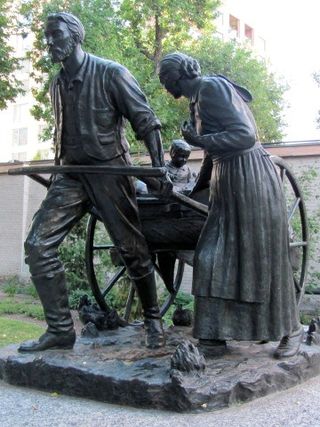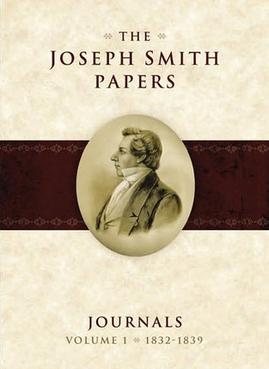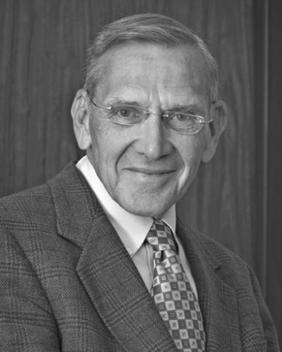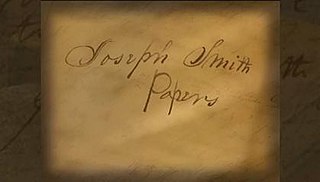
Leonard James Arrington was an American author, academic and the founder of the Mormon History Association. He is known as the "Dean of Mormon History" and "the Father of Mormon History" because of his many influential contributions to the field. Since 1842, he was the first non-general authority Church Historian for the Church of Jesus Christ of Latter-day Saints, from 1972 to 1982, and was director of the Joseph Fielding Smith Institute for Church History from 1982 until 1986.
Grant Hart Palmer was an American educator best known for his controversial work, An Insider's View of Mormon Origins, which ostensibly led to his disfellowshipment in 2004 from the Church of Jesus Christ of Latter-day Saints.
Historians of the Latter Day Saint movement are a diverse group of historians writing about Mormonism. Historians devoted to the history of the Latter Day Saint movement may be members of a Latter Day Saint faith or non-members with an academic interest. They range from faith-promoting historians to anti-Mormon historians, but also include scholars who make an honest effort at objectivity.

The Mormon religion is predicated on what are said to be historical events such as the First Vision of Joseph Smith and the historicity of the Book of Mormon, which describes a detailed pre-Columbian history of the Americas. Joseph Fielding Smith, the tenth president of the Church of Jesus Christ of Latter-day Saints, declared that "Mormonism, as it is called, must stand or fall on the story of Joseph Smith. He was either a prophet of God, divinely called, properly appointed and commissioned, or he was one of the biggest frauds this world has ever seen. There is no middle ground." As Jan Shipps has written, "Mormonism, unlike other modern religions, is a faith cast in the form of history," and until after World War II, Mormons did not critically examine the historical underpinnings of their faith; any "profane" investigation of the church's history was perceived "as trespassing on forbidden ground."

View of the Hebrews is an 1823 book written by Ethan Smith, a Congregationalist minister in Vermont, who argued that Native Americans were descended from the Ten Lost Tribes of Israel, a relatively common view during the early nineteenth century. Numerous commentators on Mormon history, from LDS Church general authority B. H. Roberts to Fawn M. Brodie, biographer of Joseph Smith, have noted similarities in the content of View of the Hebrews and the Book of Mormon, which was first published in 1830, seven years after Ethan Smith's book.
The Neal A. Maxwell Institute for Religious Scholarship, or Maxwell Institute, is a research institute at Brigham Young University (BYU). Made up of faculty and visiting scholars who study religion, the institute's namesake is a former LDS apostle. Neal A. Maxwell is known by Latter-day Saints and others for his writings and sermons.

Church Historian and Recorder is a priesthood calling in the Church of Jesus Christ of Latter-day Saints. The role of the Church Historian and Recorder is to keep an accurate and comprehensive record of the church and its activities. His office gathers history sources and preserves records, ordinances, minutes, revelations, procedures, and other documents. The Church Historian and Recorder also chairs the Historic Sites Committee and Records Management Committee, and may act as an authoritative voice of the church in historical matters.
Marlin Keith Jensen is an American attorney who has been a general authority of the Church of Jesus Christ of Latter-day Saints since 1989. He served as the official Church Historian and Recorder of the church from 2005 to 2012. He was the 19th man to hold that calling since it was established in 1830. Jensen was made an emeritus general authority in the October 2012 general conference.

The Joseph Smith Papers is a project researching, collecting, and publishing all manuscripts and documents created by, or under the direction of, Joseph Smith (1805-1844), the founder of the Latter Day Saint movement. The documents, which include transcriptions and annotations, have appeared both online and in printed form. The Church History Department of the Church of Jesus Christ of Latter-day Saints sponsors the project; the department's imprint, the Church Historian's Press, publishes the website and the printed volumes.
Ronald Kent Esplin is the managing editor of The Joseph Smith Papers project and the former director of the Joseph Fielding Smith Institute for Latter-day Saint History at Brigham Young University (BYU).
Dean Cornell Jessee is a historian of the early Latter Day Saint movement and leading expert on the writings of Joseph Smith Jr.

The Story of the Latter-day Saints is a single-volume history of the Church of Jesus Christ of Latter-day Saints by James B. Allen and Glen M. Leonard, first published in 1976.
James Brown "Jim" Allen is an American historian of Mormonism and was an official Assistant Church Historian of the Church of Jesus Christ of Latter-day Saints from 1972 to 1979. While working as Assistant Church Historian, he co-authored The Story of the Latter-day Saints with Glen Leonard. After Ezra Taft Benson dismissed the book as secular new history, other events led to the dissolution of the LDS Church History department in 1982. Allen resigned as Assistant Church Historian in 1979, returning to work at Brigham Young University (BYU) full-time.
William George Hartley was an American historian and author. He wrote many books primarily on family history research, histories of specific families and 19th-century Latter-day Saint history.
Mark Roscoe Ashurst-McGee is an American historian of the Latter Day Saint movement and editor for the Joseph Smith Papers project.

Ronald Warren Walker was an American historian of the Latter Day Saint movement and a professor at Brigham Young University (BYU) and president of the Mormon History Association. His work, acclaimed by the Mormon History Association, dealt with the Godbeites, the Utah War, and the Mountain Meadows Massacre, among other topics.
Mormon studies is the interdisciplinary academic study of the beliefs, practices, history and culture of individuals and denominations belonging to the Latter Day Saint movement, a religious movement associated with the Book of Mormon, though not all churches and members of the Latter Day Saint movement identify with the terms Mormon or Mormonism. Denominations of the Latter Day Saint movement include the Church of Jesus Christ of Latter-day Saints, by far the largest, as well as the Community of Christ (CoC) and other smaller groups, include some categorized under the umbrella term Mormon fundamentalism.

The Joseph Smith Papers: Television Documentary Series is a documentary television series produced by Ronald O. Barney and the Larry H. Miller Communications Corporation. The series documented the creation of, and work involved in, the Joseph Smith Papers Project. It also discussed the history of Joseph Smith, the founder and first prophet of the Church of Jesus Christ of Latter-day Saints, as well as the early history of the Latter Day Saint movement.
This is a bibliography of works on the Latter Day Saint movement.







